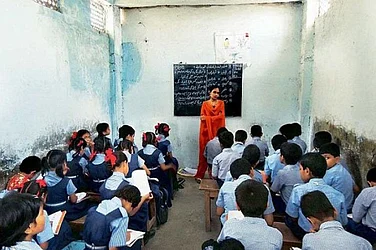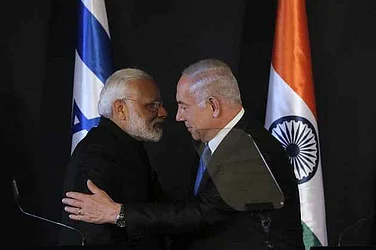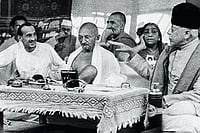The recent revelations by the IB on the funding and working of NGOs has once again exposed the chinks in our civil society armour. Not all NGOs are bad and anti-development. But the most popular, and very rich ones, need to be brought under the scanner.
Going by the IB report, only two per cent of the country’s estimated 20 lakh NGOs report their foreign donations, and most of the money is used for purposes not specified by the NGOs in their mandate document. Supporting the IB report, the home ministry report states, “It is necessary to note that the NGO sector in India is vulnerable to the risks of money-laundering and terrorist financing.” In 2011-12 , the highest foreign contribution by any district was reported by Chennai (Rs 889.99 crore) followed by Mumbai (Rs 825.4 cr) and Bangalore (Rs 812.48 cr). Among NGOs, World Vision of India, Chennai, reportedly received the highest that year at Rs 233.38 cr, followed by the Believers Church India, Pathanamthitta, Kerala (Rs 190.05 cr), and Rural Development Trust, Anantapur, in Andhra Pradesh (Rs 144.39 cr). There is no detailed account of the funds spent by these organisations nor also anything about the purpose. Only a small portion of the funds earmarked for the purpose go to the targeted recipients. People associated with NGOs often refute these criticisms saying that funds are needed to recover costs, pay very high salaries to professionals, prepare reports and meet the day-to-day running cost of the organisation. Ironically, the story is not very different in some of the international global organisations, including those affiliated to the UN.
According to a World Bank report, the NGO ‘sector’ in both developed and developing countries has grown exponentially since the mid-’70s. It is now estimated that over 15 per cent of total overseas development aid, about $8 bn, is channelled via NGOs. On a rough estimate, there are about 6,000 to 30,000 local NGOs active in developing countries alone. This figure does not include the unregistered community-based organisations in developing countries which could add up to several lakhs.
The spurt in NGO activism could have come after the Washington Consensus, emphasising macroeconomic stability and integration of national economies with the world economy—a neo-liberal view of globalisation. This required a rigorous non-governmental regime to link the moneybags of the West with the governments of underdeveloped countries, seen more as economic entities than sovereign political authorities. This gave NGOs unbridled authority, transnational clout and a self-usurped mandate to challenge the political authority. In some cases, powerful governments used NGOs to redefine economic agenda, international business and technical contracts (Koodankulam, for example) and alleged human rights violations as a stick to beat an elected government with.
Little wonder that many countries, not all governed by despotic tyrants, have turned the heat on NGOs. Russia has a new anti-NGO legislation that mandates NGOs wanting to engage in political activities, attempting to change state policy and engage in such activities to register with a special agency before receiving foreign money and declare themselves foreign agents. Similar legislation has been proposed in Israel, and even Canada, a former citadel of liberal thinking, has strongly protested foreign-funded environmental groups claiming they undermine national sovereignty. It would be uncharitable to tar all NGOs as anti-national and anti-development, but the need to regulate and monitor their activities, foreign and local funding and performance can be overlooked only at national peril.
The author is former editor of Organiser and was UNDP consultant on governance in South Sudan, E-mail your columnist: charidr [AT] gmail [DOT] com
























